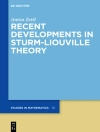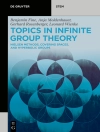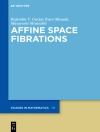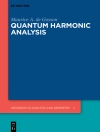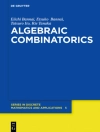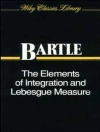This edited volume provides insights into and tools for the modeling, analysis, optimization, and control of large-scale networks in the life sciences and in engineering. Large-scale systems are often the result of networked interactions between a large number of subsystems, and their analysis and control are becoming increasingly important. The chapters of this book present the basic concepts and theoretical foundations of network theory and discuss its applications in different scientific areas such as biochemical reactions, chemical production processes, systems biology, electrical circuits, and mobile agents. The aim is to identify common concepts, to understand the underlying mathematical ideas, and to inspire discussions across the borders of the various disciplines.
The book originates from the interdisciplinary summer school “Large Scale Networks in Engineering and Life Sciences” hosted by the International Max Planck Research School Magdeburg, September 26-30, 2011, and will therefore be of interest to mathematicians, engineers, physicists, biologists, chemists, and anyone involved in the network sciences. In particular, due to their introductory nature the chapters can serve individually or as a whole as the basis of graduate courses and seminars, future summer schools, or as reference material for practitioners in the network sciences.
Mục lục
Preface.- 1 Introduction to the Geometric Theory of ODEs with Applications to Chemical Processes, Dietrich Flockerzi.- 2 Mathematical Modeling and Analysis of Nonlinear Time-Invariant RLC Circuits, Timo Reis.- 3 Interacting with Networks of Mobile Agents, Magnus Egerstedt, Jean-Pierre de la Croix, Hiroaki Kawashima, and Peter Kingston.- 4 Combinatorial optimization: the interplay of graph theory, linear and integer programming illustrated on network flow, Annegret K. Wagler.- 5 Stoichiometric and Constraint-based Analysis of Biochemical Reaction Networks, Steffen Klamt, Oliver Hädicke and Axel von Kamp.- 6 A Petri Net based Framework for Biomodel Engineering, Mary Ann Blätke, Christian Rohr, Monika Heiner and Wolfgang Marwan.- 7 Hybrid Modeling for Systems Biology: Theory and Practice, Moritz von Stosch, Nuno Carinhas and Rui Oliveira.
Giới thiệu về tác giả
Prof. Dr. Peter Benner is a professor of Mathematics and head of research unit Computational Methods in Systems and Control Theory at the Max-Planck-Institute for Dynamics of Complex Technical Systems in Magdeburg/Germany.
Prof. Dr.-Ing. Rolf Findeisen is a professor of Mathematics and Chair for Systems Theory and Automatic Control at Otto-von-Guericke-University Magdeburg, Institute for Automation Engineering.
Prof. Dr. Dietrich Flockerzi is a professor of Mathematics and a Member of the organizational unit: Max Planck Institute for Dynamics of Complex Technical Systems and Systems and Control Theory.
Prof. Dr.-Ing. Udo Reichl has held the Chair of Bioprocess Engineering at the University of Magdeburg, and he was appointed Director at the MPI for the Dynamics of Complex Technical Systems in 2000.
Prof. Dr.-Ing. Kai Sundmacher is head of Research Group ‘Physical and Chemical Process Engineering’, Max Planck Institute for Dynamics of Complex Technical Systems, Magdeburg and a professor for Process Systems Engineering at Otto-von-Guericke-University Magdeburg. He is also a director and scientific member at the Max Planck Institute for Dynamics of Complex Technical Systems, Magdeburg.




